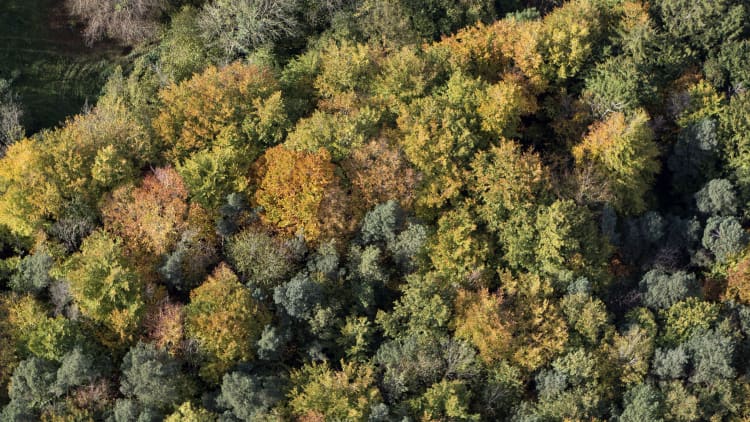
Forests are beautiful, home to a diverse range of wildlife, and play an important role when it comes to looking after the world we live in.
Much like their appearance, the benefits of forests are multi-layered.
According to a recent report from the Food and Agriculture Organization of the U.N. (FAO), forests "supply water, provide livelihoods, mitigate climate change and are essential for sustainable food production."
All is not well, however. The State of the World's Forests 2020 report says that both forest degradation and deforestation "continue to take place at alarming rates."
And while the FAO states that the rate of deforestation has actually fallen across the last three decades, it also notes that an estimated 420 million hectares "have been lost through conversion to other land uses" since 1990.
Against this backdrop, a range of organizations are attempting to promote the sustainable management of forests.
These include France-based Reforest'Action, a social enterprise focused on the preservation, restoration and creation of forests.
Stéphane Hallaire is the president and founder of Reforest'Action. At a site in Neauphlette, west of Paris, he explained to CNBC's "Sustainable Energy" how his company had worked the surrounding landscape to create a varied environment.
"This forest used to be a poplar tree forest, a damaged one," he said. "So what we did, four years ago, is we removed trees and we planted a diverse forest made of oak trees … but also chestnut trees … and wild cherry trees."
"They make a diverse forest and the diseases, the storms, the wildfires, make slow progress in a diverse forest as opposed to a more 'unique species' one."
Hallaire was then asked about the threats that forests are facing today. "There are different types of threats for forests depending (on) where you are," he said.
"If you are in the tropical regions, deforestation is the biggest threat today," he added. "But if you are in temperate forests, like in Europe or France, then there is no longer deforestation but forests are degraded because of climate change." Examples he gave included more frequent and violent storms, diseases and insects.
Urban planting
The conversation turned to the work of Afforestt, an Indian organization attempting to green cities with a technique that employs high-density planting.
A for-profit social enterprise set up in 2011 by former Toyota engineer Shubhendu Sharma, Afforestt employs the Miyawaki Technique, which is named after the Japanese botanist Akira Miyawaki.
In simple terms, it's a methodology that emphasizes the importance of high-density planting and native species.
Afforestt combines the Miyawaki Technique with something called Heijunka, a system used by businesses to cut waste and boost efficiency.
Reforest'Action's Hallaire described urban forestry as "very important" and went on state that his company had "done it a number of times in France and in Europe."
He went on to cite the example of his organization planting an urban forest in the French capital of Paris.
"It was on an area (of) 700 square meters … and all the people living around the place came together, the families, the kids, and the parents to plant the trees."
Given the benefits that forests bring, one could be tempted to encourage their growth in all parts of the world.
It's not that simple, however. When asked where forests were required, Hallaire was keen to emphasize that they weren't needed "in every part of the world because in some places forests don't grow, they don't exist."
"But forests are needed in most places, and especially in the tropical regions," he added.




